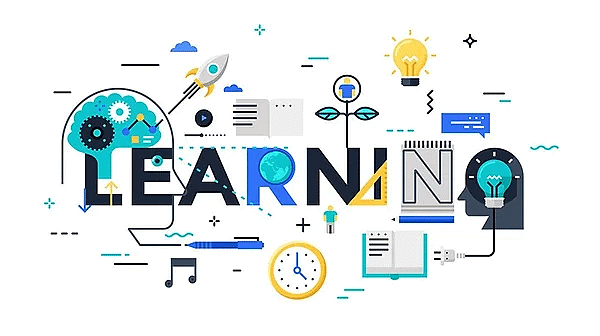Oriental, Conventional & Non Conventional learning programmes - Higher Education System Notes
| Table of contents |

|
| Introduction |

|
| Oriental Learning Programmes in India |

|
| Conventional Learning Programmes in India |

|
| Non-Conventional Learning Programmes in India |

|
Introduction
India offers a variety of learning programmes designed to equip the youth with education and skills for employment.
 These programmes are categorized into Oriental, Conventional, and Non-Conventional learning modes.
These programmes are categorized into Oriental, Conventional, and Non-Conventional learning modes.
Oriental Learning Programmes in India
Oriental studies encompass the cultures, languages, history, and archaeology of the Near and Far East. In contemporary terms, they are referred to as Middle Eastern and Asian studies.
- Historical Context: With the decline of the Gurukula System and ancient universities, preserving ancient knowledge became essential. Western scholars in the 19th and 20th centuries initiated this revival.
- Institutes and Libraries: Many institutes and libraries were established to preserve and promote ancient knowledge.
Oriental Research Institutes: Focus on collecting, editing, and publishing rare manuscripts in languages like Prakrit and Sanskrit.
- Key Institutes:
- Adyar Library and Research Centre (Madras)
- Asiatic Society
- Bhandarkar Oriental Research Institute (Pune)
- Ganganath Jha Kendriya Sanskrit Vidyapeeth (Allahabad)
- Kuppuswami Sastri Research Institute (Madras)
- Madras Sanskrit College (Chennai)
- Mythic Society (Bangalore)
- Oriental Institute (Baroda)
- Oriental Manuscripts Library (Trivandrum)
- Oriental Research Institute (Mysore)
- Oriental Research Institute (Tirupati)
- Sanskrit Academy (Madras)
- Sanskrit Sahitya Parishad (Kolkata)
- Government Sanskrit College (Kolkata)
- Saraswati Mahal Library (Tanjavur)
- Vishveshvaranand Vishvabandhu Institute of Sanskrit and Indological Studies
Conventional Learning Programmes in India
Conventional learning programmes include traditional courses offered by colleges and universities.
Characteristics:
- Objectives: Focus on knowledge, comprehension, and employment opportunities.
- Progressive Education: Emphasis on holistic learning, self-control, self-realisation, and cultural values.
- Employment: Adequate but often requires a longer duration.
- On-Campus: Fixed schedules requiring regular attendance and adherence to a prescribed curriculum.
- Teaching Methods: Emphasis on teaching through listening and observation.
- Assessment: Traditional methods of student evaluation.
Non-Conventional Learning Programmes in India
Non-conventional learning programmes differ from conventional ones by incorporating advanced and flexible learning methods.
Characteristics:
- Learner-Oriented: Programs tailored to individual needs.
- Employment-Oriented: Focus on practical and employment-ready skills.
- Cost-Effective: More affordable compared to traditional education.
Types
1. Distance Education: Education for students not physically present at school.
Objectives:
- Utilize intellectual resources efficiently.
- Certify attainments from both formal and non-formal means.
- Provide accessible knowledge for self-paced learning.
- Facilitate sharing of ideas and resources.
Characteristics:
- Cost-Effective: Affordable compared to traditional degrees.
- Flexibility: Allows students to study at their convenience.
- Wide Range of Courses: Offers various degree, diploma, and certification courses.
- Career Growth: Enables continuous academic and career advancement.
- No Commutation: Study from home with optional classroom sessions on weekends.
Modes:
- Correspondence Education
- Radio and Television
- Open Universities
- In-Service Teacher Education Programmes
2. Open Universities
Characteristics:
- No traditional classroom teaching; materials are provided online or sent home.
- Affordable and accessible education.
- No age limit for pursuing higher education.
- Degrees and certificates are UGC-approved.
- Flexible program duration.
Structure:
- Chancellor
- Two Vice-Chancellors (one for academics, one for finances)
- Study centres in each district
- Five Directors and two principals for assistance
Example: Indira Gandhi National Open University (IGNOU) offers high-quality teaching through the Open and Distance Learning (ODL) mode.
IGNOU Objectives:
- Provide access to higher education for all societal sections.
- Offer continuous professional development and training.
IGNOU Functions:
- Deliver innovative, need-based programs.
- Reach disadvantaged populations with affordable education.
- Promote and regulate open and distance learning standards.
State Open Universities (SOUs):
- Established by state grants, they provide education only in the distance mode.
- Cater to those unable to pursue regular courses.
- Example: Dr. B.R. Ambedkar Open University was the first, established in Hyderabad in 1982.
- There are 13 state open universities including:
- Dr. B.R. Ambedkar Open University, Hyderabad
- Vardhman Mahaveer Open University, Kota
- Nalanda Open University, Patna
- Yashwantrao Chavan Maharashtra Open University, Nashik
These learning programmes ensure diverse educational opportunities, addressing different needs and enabling the youth to gain valuable skills and knowledge for employment.
|
33 videos|24 docs|6 tests
|
FAQs on Oriental, Conventional & Non Conventional learning programmes - Higher Education System Notes
| 1. What are the key differences between conventional and non-conventional learning programmes? |  |
| 2. How does Oriental learning differ from conventional learning programmes? |  |
| 3. What are some examples of Oriental learning programmes? |  |
| 4. How can students benefit from participating in non-conventional learning programmes? |  |
| 5. Are there any government regulations or accreditation bodies that oversee non-conventional learning programmes? |  |




















